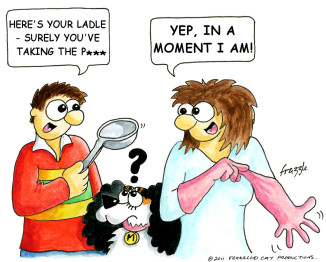My dog has a urine infection. What does this mean?
Just like us, dogs can develop bladder problems. The two most common causes are
Urinary Tract Infections – which basically means when there is infection and/or inflammation in the bladder
Urinary Tract Stones – when there are stones, crystals or debris accumulation in the bladder or urethra. Dogs can develop several types of urinary tract stones. The most common are called struvite stones, which often form in conjunction with bladder infections. There are five other types of stones, so it is important to know which one is causing the problem as the treatment for each can vary.
There can be many other causes though, we have only highlighted the top two, so you must see a vet to get the correct diagnosis and treatment.
What should I look out for?
When dogs get UTIs, they may strain or have difficulty urinating, it may be painful for them to go, and they may have blood in their urine. They may want to go outside more, or produce a much greater amount of urine than normal. A very common symptom is an otherwise house trained dog starting to wee indoors. So the main signs are:
- Frequent urination
- Breaking house-training
- Blood in the urine
- Dribbling urine
- Crying out while urinating
- Straining to urinate
- Frequently or obsessively licking the genital area
- Foul smelling or cloudy urine
- Pain in the back or bladder area
What should I do if I suspect a UTI?
At the first sign of any discomfort you must take your dog to the vets. Bladder problems can be extremely painful and should never be left.
Collect a urine sample – to get a diagnosis, your vet will need to analyse a urine sample for the presence of white blood cells, which signal infection, or crystals, which suggest that the dog may have bladder stones. Obtaining a sample is not always easy but if you have a plastic container like an ice cream tub/ large yoghurt pot, or something similar, you can put this underneath the females when they squat or hold it to try to catch some of the urine stream from the males. Please sterilise the pot first using boiling water, and keep the sample in the fridge until your visit to the vet.
What will the vet do?
 The first step will be to give your dog a full examination, take a history, check their temperature and test a urine sample. If a simple UTI is suspected then a course of antibiotics is usually given along with advice to encourage your dog to drink plenty of water, and to come back if it doesn’t clear up. It is so important that you are able to observe your dog’s toileting habits during this time to see if there has been any improvement.
The first step will be to give your dog a full examination, take a history, check their temperature and test a urine sample. If a simple UTI is suspected then a course of antibiotics is usually given along with advice to encourage your dog to drink plenty of water, and to come back if it doesn’t clear up. It is so important that you are able to observe your dog’s toileting habits during this time to see if there has been any improvement.
If your dog is having repeated infections then more tests may be performed, including sending urine away for culture testing, taking some bloods and doing an ultrasound or x-ray of the bladder area to check for any blockages, inflammation or crystals/stones. If your dog has a lot of crystals forming then your vet may suggest a special prescribed urinary diet which can actually helps stop those crystals from forming. However treatment will vary depending on the underlying cause. Your vet will advise you on the best course of action.
What can I do to prevent this from happening?
Make sure your dog has access to fresh clean water at all times. If fed on a dry diet try adding some more moisture in with some cooked vegetables or mixing some broth in with their kibble. Allow plenty of toilet breaks as having to hold on for many hours can in itself lead to bladder problems. Being aware of your dog’s toileting habits and noticing changes in their behavior is the best way to ensure quick treatment.
Did you know?
Although kidney and bladder stones can afflict dogs of both sexes, all breeds, and all ages, those at greatest risk are small, female, between the ages of 4 and 8, and prone to bladder infections. Although male dogs develop fewer stones, the condition is more dangerous to them because of their anatomy. Stones are more likely to cause blockages in the male’s longer, narrower urethra.
This is intended to be a useful guide only. If you do suspect a UTI then please consult your veterinary surgeon.

